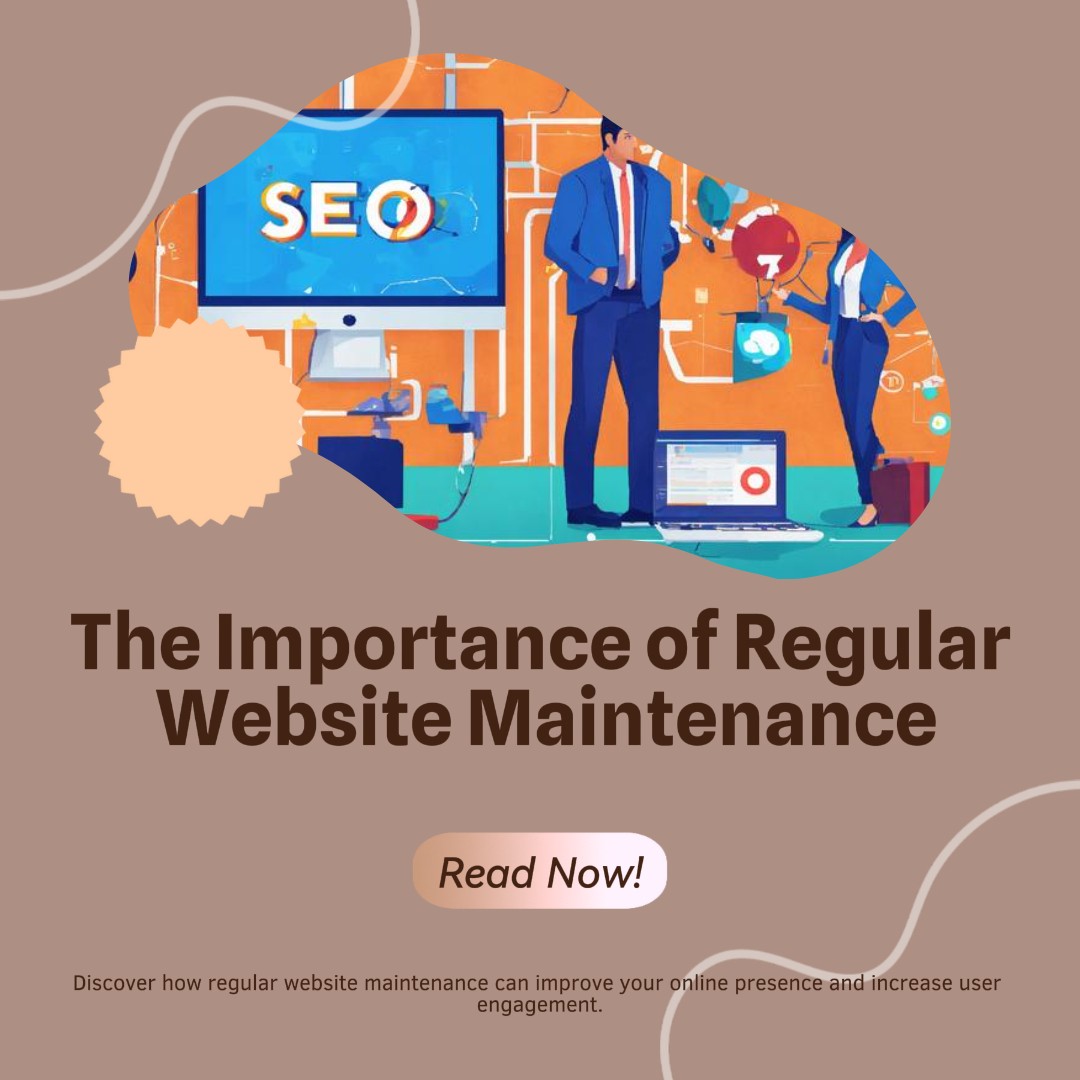In today’s world, which operates at the speed of lightning with technological advances, websites are not behind at all. Not only in how it looks but what it can do, new technologies are dramatically changing the way websites are designed and experience them. But what does all this mean for the future of websites? Let’s dig into these advancements and see how they have shaped the digital landscape to make websites more interactive, accessible, and tailored to user needs.
Table of Contents
- Introduction
- AI in Web Design
- Virtual and Augmented Reality Roles
- Future of Web Development: No-Code and Low-Code Platforms
- AI-fueled Enhanced User Experience
- Mobile-First and Responsive Design
- Light Speed Website Page Loads and Web Optimization Technologies
- Voice Search Optimization Rise
- Cybersecurity: The Foundational Piece of Future Websites
- Accessible and Inclusive Web Design
- Blockchain Impact on Web Security
- Quantum Computing and Its Future Implications for Websites
- Sustainable Web Design: Green Technologies for Websites
- The Role of 5G in Web Development and Connectivity
- Conclusion: The Future is Now
Introduction
Day by day, the internet web beds into our lives in ways that are increasingly deeper, and websites are becoming the standard approach through which we interact with the web. Websites, too, continue to evolve to make way for the changing demands and expectations of the user as new technologies continue to develop. Just think about the times; how has the internet changed in the last decade? What once was only static, useless space is now a dynamic platform chock-full of innovational features. It has undergone not just cosmetic change but fundamentally changes our interaction with websites.
So, just exactly how are these new technologies reshaping the future of websites? Read on to see what the future holds.
Role of Artificial Intelligence in Website Design
Artificial Intelligence is really becoming the new buzz in website design. From content generation to layout optimization and even the personalization of user experience, AI can automate it all. Do you ever remember visiting a website that seemingly “knew” exactly what you wanted? That’s AI at work.
AI-Driven Personalization
With the improvement in AI algorithms, today a website can analyze the behavior and preference of its users and accordingly offer them content. This not only interests users but also raises the chances of better conversion rates for businesses. Imagine AI as a smart concierge who can read your mind before you even ask.
Chatbots and Virtual Assistants
AI-based chatbots have reviewed widely and dubbed the future of customer service at any website. They could answer most questions and guide the user. As AI develops, chatbots get upgraded to mimic human-like interactions, providing easier access for the user.
Impact of Virtual Reality and Augmented Reality
Imagine if you could try on clothes, or take a 3D tour of a property sitting at home. This is the world of Virtual Reality (VR) and Augmented Reality (AR).
Immersive Experiences
With VR and AR, websites have moved beyond just displaying information. These technologies are highly in demand in industries like real estate, fashion, and e-commerce.
Increased Participation
Integrating VR and AR with websites helps businesses engage users. If users can interact with a product virtually, they are more likely to make a purchase or spend more time on the site.
Advancements in Web Development: The Strength of No-Code and Low-Code Platforms
Gone are the days when websites required deep technical knowledge for development. Thanks to no-code and low-code platforms, web development has become democratized, enabling anyone to build a website without writing code.
Empower Non-Developers
No-code platforms feature drag-and-drop functionality, making it easy for non-developers to create beautiful, functional websites. Low-code platforms offer more customization for those with some coding knowledge.
Accelerated Time to Market
These platforms reduce the time to launch a website, allowing businesses to respond more quickly to market changes and experiment with new designs and features.
Superior Experience in the Front End via Machine Learning
Machine learning makes websites more interactive, learning users’ behaviors and preferences to enhance user experience.
Predictive Content
Machine learning allows websites to predict what content users will interact with, offering recommendations based on their preferences.
Improved Search Functions
ML-powered search engines understand user intent, delivering more relevant, personalized results rather than generic search outcomes.
Mobile-First Approach and Responsive Design
As mobile devices become the primary method for accessing the internet, websites must be designed to be mobile-friendly, ensuring they look and function well on smartphones, tablets, and desktops alike.
Responsive Design
Responsive design ensures that web pages resize themselves to fit any screen, improving usability and SEO rankings as search engines prioritize mobile-friendly websites.
Progressive Web Apps
Progressive web apps (PWAs) combine the best of websites and mobile apps, offering fast, functional performance without requiring a download.
Optimization of Web Technologies for Fast Loading Speeds
Website speed is critical, with research showing that users leave pages that take more than three seconds to load. Web optimization technologies are essential for ensuring fast performance.
CDNs
Content delivery networks (CDNs) reduce website load times by delivering content from the nearest server to the user.
Lazy Loading
Lazy loading defers the loading of images and videos until they are needed, improving initial load times and browsing speed.
Voice Search Optimization
Voice search optimization is key as voice-activated devices like Amazon Echo and Google Home rise in popularity. Websites must adapt to handle natural language queries.
Natural Language Queries
Unlike traditional keyword searches, voice search queries are more conversational, requiring websites to provide concise answers to user questions.
Featured Snippets
Featured snippets are valuable because smart assistants often pull answers directly from these search results, giving websites a visibility boost.
Cybersecurity: The Foundation of Future Sites
As websites grow more complex and handle more sensitive data, robust security measures are essential to protect user trust and prevent attacks.
SSL Encryption
SSL encryption ensures that all data transmitted between users and websites remains secure. Google also favors SSL-enabled sites in its rankings.
Advanced Firewalls
Advanced firewalls protect websites from next-generation threats, securing data and preventing breaches.
Accessibility and Inclusive Design
Websites must be accessible to all users, including those with disabilities. Accessibility is not only a legal obligation but also a moral imperative for many countries.
Compatibility with Screen Readers
Websites must be compatible with screen readers, enabling visually-impaired users to navigate them.
Keyboard Navigation
Accessible design also ensures that websites can be navigated using only a keyboard, providing an alternative to mouse-based interaction.
How Blockchain Is Revolutionizing Website Security
While blockchain is often associated with cryptocurrencies, it is increasingly being used to enhance website security by offering decentralized data storage, making hacking more difficult.
Decentralized Data Storage
Blockchain’s decentralized nature makes it nearly impossible for hackers to compromise website security.
Improved Authentication
Blockchain can provide safer authentication methods, ensuring that users’ information is protected from malicious use.
Quantum Computing: How It Can Shape the Future of Websites
Quantum computing, once the stuff of science fiction, is becoming a reality. It promises to revolutionize website performance by solving complex problems at unprecedented speeds.
Speed and Efficiency
Quantum computers can process large amounts of data in real-time, making websites faster and more secure.
Sustainable Web Design: Green Technologies for Websites
Environmental concerns have led to the rise of sustainable web design, which seeks to reduce the energy consumption of websites and minimize their carbon footprint.
Eco-Friendly Hosting
Eco-friendly hosting providers use renewable energy sources to power websites, reducing their environmental impact.
Optimized Code
Writing cleaner, more efficient code reduces energy consumption, contributing to greener web activities.
The Role of 5G in Web Development and Connectivity
The advent of 5G networks promises faster speeds and lower latency, transforming the internet experience and enhancing the delivery of website content.
Faster Load Times
5G will enable faster load times and support resource-intensive website functions without sacrificing performance.
Richer Mobile Experience
5G will facilitate high-definition video and immersive augmented reality experiences on the go, making mobile browsing richer and more engaging.
Conclusion: The Future is Now
The future of websites is bright, filled with promises of AI, quantum computing, and other technologies that will make websites more interactive, efficient, and secure. These innovations are continually evolving, and with them, so is the way people experience the web. But the best part? The future is already here, and it just keeps getting better.
FAQs
1. How is AI shaping website design?
AI is revolutionizing website design by personalizing user experiences, automating content creation, and improving user interaction with AI-powered chatbots.
2. What role do VR and AR play in websites?
VR and AR provide immersive experiences for users, enhancing engagement and retention, particularly in industries like real estate and e-commerce.
3. What is the significance of mobile-first design?
Mobile-first design prioritizes optimizing websites for mobile devices, ensuring that they function well on all screens, particularly smartphones, which dominate web browsing today.
4. What is voice search optimization, and why is it important?
Voice search optimization tailors websites to respond to natural language queries, which is crucial as smart speakers become more popular.
5. How does blockchain enhance website security?
Blockchain improves website security through decentralized data storage and secure authentication methods, making it harder for hackers to access sensitive information.
Relevant Links:






